JIWAJOURNAL The

W E S N
IN THIS ISSUE:
BABY OR JOB?
MIGRANT WORKERS FORCED TO TERMINATE EITHER PREGNANCY OR EMPLOYMENT
IMMIGRATION: A COMPLEX ISSUE
LANGUAGE MATTERS: IS THERE A DIFFERENCE BETWEEN AN EXPAT AND A MIGRANT WORKER?



W E S N
IN THIS ISSUE:
BABY OR JOB?
MIGRANT WORKERS FORCED TO TERMINATE EITHER PREGNANCY OR EMPLOYMENT
IMMIGRATION: A COMPLEX ISSUE
LANGUAGE MATTERS: IS THERE A DIFFERENCE BETWEEN AN EXPAT AND A MIGRANT WORKER?

A publication of Jiwa International, devoted to telling the stories of migrant workers around the world and keeping you up to date about the work of Jiwa to meet the physical, emotional, and spiritual needs of this vulnerable population
POSTMASTER: Send address changes to
Jiwa International
213 N Main St Spring Grove, PA 17362 contactjiwaintl@gmail com
President & Founders
Nathan Conklin
Laura Ward Conklin
Jiwa Journal Editors
Nathan Conklin
Adam Schmehl
Jiwa International Board of Directors
Chad Brubaker
Emily Brubaker
Rev Nate Conklin
Dr Vincent LaFrance
Susan Millikan
For advertising opportunities in The Jiwa Journal, please contact us at contactjiwaintl@gmail com
Subscribe to The Jiwa Journal to read updates about the organization, world news as it relates to migrant workers, and other interesting articles To subscribe to digital and/or print editions, go to www jiwaintl org/journal
We are pleased to provide this resource for free as we view this as part of our mission to advocate for migrant workers by telling their stories However, if you would like to help cover the development and distribution costs of The Jiwa Journal, you may make a donation to Jiwa International at www jiwaintl org/give
Since the launch of Jiwa International last October so much has happened! We’ve seen God’s blessing upon this organization as funding has continued to come in, partners on the ground in Taiwan have made it clear that they are excited to work with us, we’ve been invited to speak at a number of churches and organizations this spring. We’ve also had a great time of fellowship and built momentum for the work of Jiwa International at our fundraising and launch-party dinners in March and April
We look forward to returning to Taiwan this spring with great anticipation. Yet our hearts also grieve leaving family and friends in the US after a wonderful season in the States these past eight months. Although it is sad to be saying goodbye again without clarity as to when the next meeting shall be, we are greatly encouraged and strengthened for this next season of transition and starting the work of Jiwa International in earnest in Taiwan.
We are reminded as our hearts feel the ups and downs of another transition that many people around the world are experiencing similar emotions as they say goodbye to their families to embark on their own adventure and international transition in search of better economic outcomes for themselves and their families. We go with your backing and support to provide the same for these individuals who do not have the same community and privileges as we do.
Thank you for being a part of what Jiwa International is doing. May this issue of our magazine give you a greater understanding of what migrant workers around the world experience and give us greater clarity and wisdom as to how we can support this vulnerable population.
May we never forget to care for the foreigner among us

BABY
What’s
either
PRAY for the continued development of Jiwa and that the 501c3 designation would come in from the IRS soon.
PRAY for Nathan & Laura as they land and begin establishing Jiwa on the ground in Taiwan.
PRAY for the migrant workers caught in the midst of global conflict such as those in Israel and Ukraine.
PRAY for those far away from home and loved ones, that they would experience the goodness of God in their hearts and lives.
PRAY that God would direct us to the right location to set up Kafe Jiwa and provide the funding necessary to get set up.

1: The Indonesian word for soul.
2: The totality of the person as a center of life, emotions, feelings, and longings.
3: The spiritual essence of a person.
 Written by Nathan Conklin
Written by Nathan Conklin
It is expensive to have a child, no matter where you live or your socioeconomic status. But, for some migrant workers, getting pregnant comes with an impossible choice.
Reuters published an article telling “Jasmine's” story. Jasmine was a migrant worker from the Philippines working in Taiwan. She was halfway through her contract of being a domestic worker for an elderly Taiwanese individual when she was faced with a heartbreaking ultimatum
Jasmine was pregnant. She told her employers and then the labor brokerage she was signed with got involved. She was told that she had to decide between her baby and her job
Her options were get an abortion or to give up her position and buy out her contract. She and her husband (who also worked in Taiwan as a migrant worker) found themselves in a terrible situation.
If she decided to keep the baby, Jasmine would be forced to pay a $17,000NT (~$560USD) contract termination fee, return a cash gift she had received from her employer for the Lunar New Year, and purchase her own plane ticket back to the Philippines She and her husband had taken out a loan to cover the brokerage fees when they first got placed in Taiwan, so Jasmine would be returning to her home country in a worse financial position than when she left for the higher wages promised in Taiwan
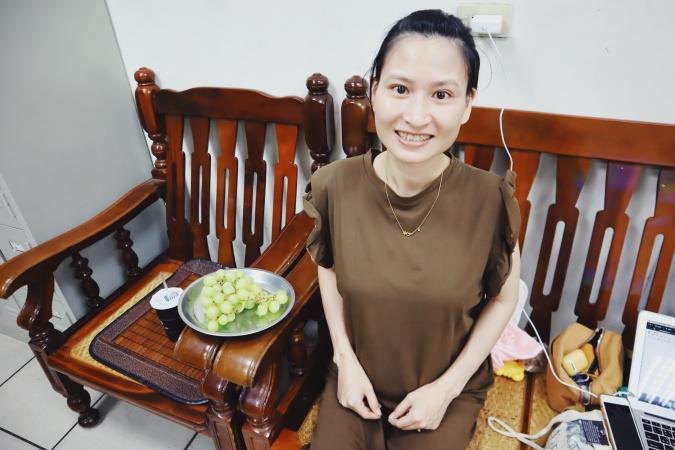
I ALWAYS WANTED TO HAVE A BABY BOY. I DON'T KNOW IF GOD CURSED ME [BECAUSE OF MY CHOICE]."
Jasmine's heartbreaking decision is not an anomaly in Taiwan While technically it is illegal for an employer to fire a worker for becoming pregnant, migrant workers have little power if their employers and brokers pressure them to do one thing or another. Between 2016 and 2019, almost three hundred foreign workers had informed the labor department of pregnancy discrimination. Jasmine did so herself, but the Taiwanese labor department said her case did not violate Taiwan's gender equality laws. This means that she had no legal protection and was only given two months of financial assistance.
When faced with such a choice, some migrant workers reject the ultimatum and decide to run away from their brokers and employers This then means they have broken the terms of their visa and no longer have legal status in Taiwan Having no legal status means their employment opportunities all must be under-the-table, leading to an even more uneven power dynamic. Additionally, they are no longer able to access the National Health Insurance (NHI) and the medical system, put their pregnancies and own health at risk.
For Jasmine, she ultimately decided to get an abortion in spite of her devout Catholic beliefs She regrets her choice to this day She said, "Every night I prayed I always said 'sorry because I need to do this ' I had to pay all of that credit I always wanted to have a baby boy. I don't know if God cursed me [because of my choice]."
Jasmine's story brings attention the greatly unjust system people like her must operate within as foreign workers. Their brokers hold great power over them with expensive fees and ultimatums. Governments do not have robust protections in place for migrant workers, allowing brokers and employers to discard people and contracts at will.
Jiwa International and other NGO's in Taiwan, such as Serve the People Association (SPA), are working to support the migrant worker population in Taiwan. Let us continue to support organizations like these as well as pray for people like “Jasmine” who find themselves in impossible positions while in search of a better life.

People being on the move is no new thing. Some of the earliest examples of human writing and record keeping demonstrate the need to be on the move The very earliest cave paintings depict our early ancestors in pursuit of wild animals for their next meal Their lifestyle followed the migration of animals and the seasonal nature of the harvest.
Other ancient literature, such as Homer’s Odyssey and the Iliad, tell of epic journeys from one farflung place to another by brave and heroic people. A common narrative throughout these adventures is the pursuit of wealth and promised lands. Moby Dick and other adventures on the high seas often tell the stories of young men who have no other economic prospects in their home town
Although the distances humankind travels nowadays are much greater than those transited by both fictional and real individuals who came before us, human migration is no new thing.
As humankind has always be too have our religious texts r and human’s relationship wit would go from place to place.
Siddhartha, before he beca traveled around his kingdom a challenges ordinary people wo revelation, he decided that he in his palace and went on a j enlightenment
The Prophet Muhammed’s jou Medina is remembered and cel
Written by Nathan Conklinas “Hijrah” and is one basis for modern Islamic pilgrimages. It was while on this journey that the Prophet Muhammad heard from God and experienced God’s protection from his enemies and the trials of the journey
The Christian scriptures also have many examples of people on the move and God’s proximity to his people. Abram was called to leave his country and follow God. Jacob experienced God while traveling in the desert. Joseph was sold as a slave and involuntarily ended up in Egypt where God used him to save his family. Moses then led the Israelites out of Egypt and it was on their many years of travel and exile that they met with God on mountain tops, in pillars of cloud and flame, in a move-able and temporary tabernacle, and in the Ark of the Covenant Other examples of people in movement in the Bible include Ruth, David, and Daniel. In all of these Biblical examples we see various drivers for their movement, some l h d fi i l l dl f

Hagar, as told in Genesis 16, found herself forced out of her home due to jealously and unequal power dynamics Genesis isn’t clear how exactly Hagar came to be a part of Abram’s migrating tribe and family, but Sarai refers to her as her slave Her story is one of forced migration, and later, of sexual abuse for her master’s gain. After ongoing mistreatment from Sarai, Hagar runs away. It is on this desperate escape that Hagar meets the God of her master and finds that this God cares for her, the child in her womb, and her circumstances as much as he does for her master. In Genesis 16:11 God says to Hagar:
“You are now pregnant and you will give birth to a son You shall name him Ishmael, for the Lord has heard of your misery
He will be a wild donkey of a man; his hand will be against everyone and everyone’s hand against him, and he will live in hostility toward all his brothers.”
Hagar responds by saying, “You are the God who sees me. I have now seen the One who sees me.” A woman forced to be on the move by life circumstances comes face to face with God who was also on the move, in relentless pursuit of her.
In their meeting, Hagar learned that God cared for her and promised a future for her descendants as much as He had for the descendants of her master
In our reading of God’s promises it could almost feel like a curse that God was speaking over Ishmael. But for a slave, impregnated against her will, mistreated by her master, this promise from God likely gave her hope. With this promise of a future in hand, Hagar returns to her master.
Later, in Genesis 21, Hagar again finds herself running away from the same abusive master, this time along with her infant child. At the brink of death, she again meets the God on the move on her desperate journey God again sees her and provides for her
This story, when viewed from Hagar’s vantage point, is an especially tragic one. Yet, while Hagar was on the move, the God on the Move was also the God who saw and heard her (El Roi - Gen 16:13) and the God who gives a hope and future (Gen 21:17-18).
This God is also a God of justice.

Justice, especially from a Western, guilt-andinnocence culture, is often thought about in terms of retributive justice, i.e. someone paying the consequences for something they have done wrong. Incarceration, fines, and other forms of punishment handed down by our modern criminal justice systems are all in the vein of retributive justice.
Retributive justice, however, is not the only way the Biblical term “mishpat” is translated and understood. The second way is as restorative justice The Bible Project defines this kind of justice as seeking out vulnerable people who are being taken advantage of, helping them, taking steps to advocate for the vulnerable, and changing social structures to prevent injustice.
In Hagar’s case, we see God seeking out those who are vulnerable and helping them. We also see God provide a measure of restorative justice by giving Ishmael a part of the future and legacy that was promised to his father and his descendants, in spite of those around him trying to take away that legacy.
Throughout the Bible, we see many examples of people on the move in a variety of circumstances But through it all, The God on the Move consistently shows his faithfulness in seeing the vulnerable and marginalized and providing them with justice.
El Roi - The God who Sees - continues to see the vulnerable to this day and lifts them up as a part of his Holy Justice. He also calls his people to do the same. Jeremiah 22:3 says God calls us to “Do what is just and right. Rescue from the hand of the oppressor the one who has been robbed. Do no wrong or violence to the foreigner, the fatherless or the widow, and do not shed innocent blood in this place ”
The New Testament also tells of the character of the God on the Move and the God who Sees in the parables of the lost coin, sheep, and son (Luke 15). God’s character is to notice the absence of the lost, go after the lost, celebrate the return of the lost, and to forgive those who have done wrong.
It is this example of Jesus and in the character of God that Jiwa International seeks out the vulnerable.
One-third of migrant workers in Taiwan experience some form of physical or verbal abuse. Southeast Asians experience racism and prejudice from the Taiwanese people that dishonor the image of God that they each bear. Our desire at Jiwa International is that the migrant workers we interact with meet Motus Dei - The God on the Move - while on their own journey. We won’t stop until all we meet feel seen by El Roi and know that God gives hope and has a future for them

Further Reading:
The Bible Project - Justice Biblical Theme
Lausanne Occasional Paper: People on the Move


Keep in the loop
See global news as it relates to migrant workers
Learn about the economic realities that drive many to migrate
Get book recommendations
Hear the hearts of Jiwa staff
Bridging cultures requires learning new languages and contexts. However, even within a single culture, words and concepts can have multiple understandings, especially when considering complex topics such as migration. Jiwa works with migrant workers, but that people group can look very different depending on a number of factors. A "migrant worker" could be an expat, a transnational, someone given asylum, or anyone else who has moved for employment.
Simply, and most broadly, a person who leaves one place and goes to another This can be within or across national borders, does not indicate legal status, and can be voluntary or involuntary. This term does not imply a reason for movement nor denote length of stay in the secondary location Every subsequent definition could be categorized as a type of migrant.
This is a term that can refer to a wide range of circumstances, but it typically refers to Internally Displaced Persons (IDP’s). These people are migrants within a country who have moved due to natural calamity, political oppression, ecological crisis, religious persecution, or for their own survival This term denotes involuntary migration and external factors forcing movement
A refugee is someone who has fled their country of origin due to fears of being persecuted for reasons of their ethnicity, religion, nationality, or membership of a particular social group Refugees also have well-founded fears that their country of origin will not protect them, or is the perpetrator, and must cross national borders in search of safety.
This term is referring to a legal status, not necessarily a type of migrant However, the migrants who are seeking asylum are asking an outside government to give them protection and legal residence status due to a fears of persecution in their home country.
While a migrant is someone on the move, someone of a certain diaspora doesn't need to have moved in order to be considered a part of a specific diaspora. Children of immigrants are not migrants, but they would be a part of that specific diaspora This is probably one of the most complex and least easily recognizable part of a person’s identity as one diasporic group can span the entire world, speak multiple languages, and be from multiple generations.
A trafficked person is someone who has been recruited, transported, and/or harbored against their will and exploited for profit A trafficked person can be of any age compelled or coerced to provide labor or service, including sexual exploitation Contract substitution, when a contract that was agreed upon and signed before leaving one’s home country is changed up arrival in the foreign country is a form of trafficking.
This term refers to a person working in a foreign country temporarily for work reasons These people rarely have intentions of permanent relocation or putting down roots in the new country “Expats” are often asked to consider working in a foreign office by their employer who may have location around the world.
Transnationals are people belonging to two or more societies, cultures, or countries at the same time. These people could be dual-citizens, or have legal residency in multiple countries. This type of migration is often voluntary These people put down roots in a host country while maintaining strong ties with homeland elsewhere
Jiwa primarily works with people who have left their less-developed home country in pursuit of employment in more-developed countries. This power differential often creates unjust working conditions where these individuals are taken advantage of. Jiwa works to meet these people in their new environment to help create meaningful community, advocate for fair working conditions, resource these migrant workers with needed training and resources, and educate the global community about the experiences of migrant workers around the world. Let's work together to care for these migrant workers!



At our fundraising dinner we had a pop-up cafe based off our idea for “Kafe Jiwa,” a safe space for migrant workers that also offers a taste of home. This allows us to test some recipes and give donors an idea of what we’re hoping to do.




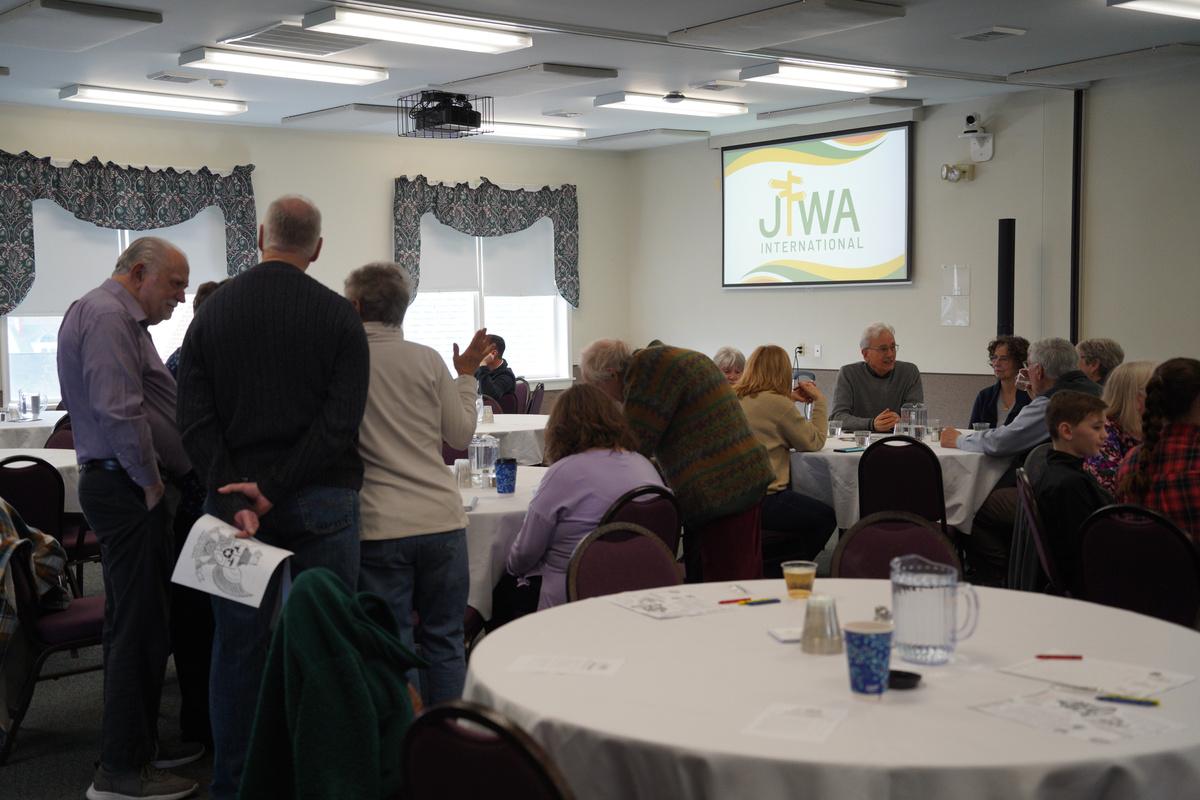
Jiwa’s fundraising dinner in Dillsburg in March was a great success! Many people learned about the work of Jiwa International and we raised over $2000! Another dinner is scheduled for April in California


With our desire to open Kafe Jiwa, we’ve been looking for locations. Colleagues in Taiwan have found a plot of land on the main street of Yuanchang, and a company that sells repurposed shipping containers. This is a popular architectural style in Taiwan and the initial quote is surprisingly affordable!


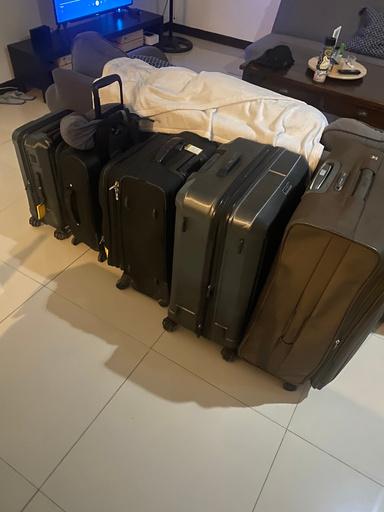
Packing up!
Nathan & Laura arrive in Taiwan in early May 2024. Lots to pack and prepare for! Thankfully they get to check 70lbs instead of the usual 50lbs. That’s valuable extra space!
Sharing about Jiwa
Nathan & Laura have spent the last few months speaking at churches and connecting with potential donors about the work of Jiwa International


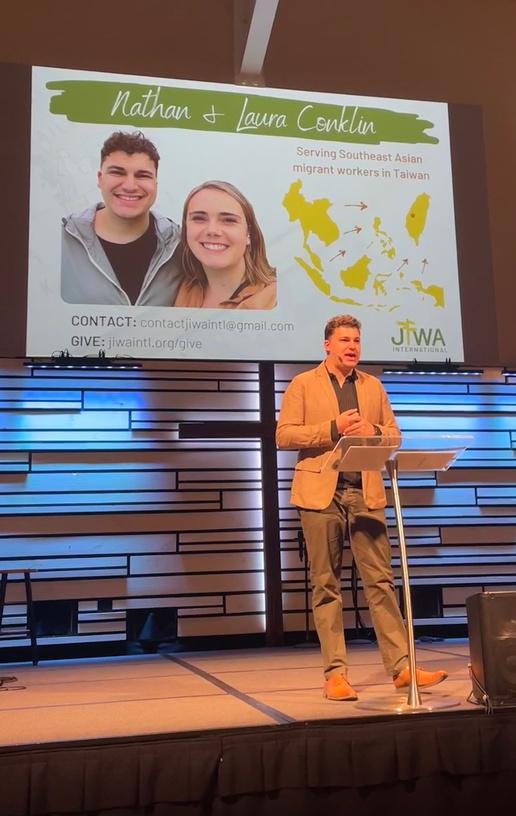

Jiwa applied for 501c3 status in November 2023 and we’re still waiting to hear back from the IRS. This status would allow us to apply for grants and pursue other available funding. The IRS says it can take 3-6 months, but the average has been closer to 12 months.

APPROVED APPROVED APPROVED REJECTED REJECTED REJECTED
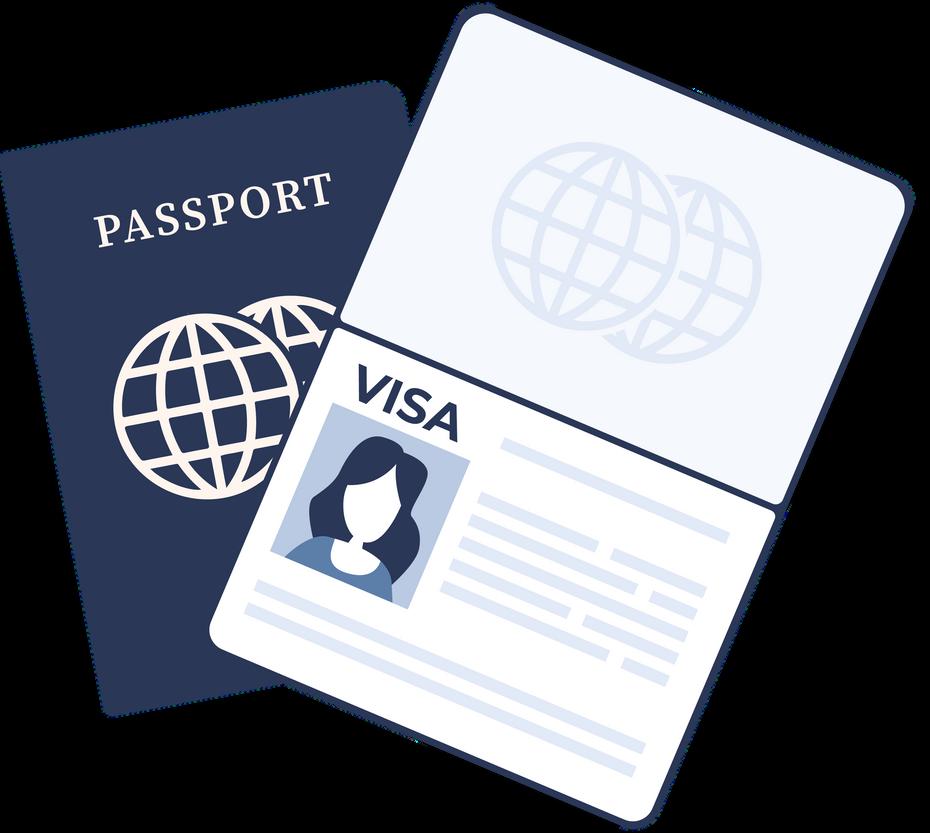
Immigration is complex It has political, economic, theological, and moral implications It’s a policy issue that we often hear about in the news Sometimes we hear inspirational stories about immigrants achieving the “American dream” after coming to this country with only a dollar in their pocket, and other times the stories we hear seem to be intended to scare us about the “other” coming to erode our ways of life. With this topic having so many dimensions, it is hard to know what to believe and think about such a wide-ranging issue. Immigration is discussed and debated at the highest levels of government as well around many of our dining room tables. Immigration is as big as government policy and as close to home as being the mechanism by which many of our families came to this country only a few generations ago.
Just the other day I was at the store and couldn’t find an item. I walked halfway around the store trying to find an employee that could help me Once I finally found someone stocking produce, I realized that this worker was of hispanic descent and didn’t speak great English He found me another worker who was able to answer my question, but as I walked away I wondered what this man’s story was to bring him to south-central Pennsylvania to stock produce for a multinational company I was then on my way home from the store and noticed a house having its roof replaced As someone who is nervous of being up too high, I marveled at the workers hooked up with harnesses and what looked like rappelling ropes confidently moving around the steep roof with relative ease. I then noticed that the entire work crew also looked of hispanic descent and might be migrant workers from Mexico
I again wondered what macro-economic and political forces brought these people to fix a roof in small town Pennsylvania; how had the “invisible hand” as Adam Smith called the invisible force that drove and directed the free market system orchestrated the necessary labor force from another country to fill a needed role in a supermarket at and roofing company. I also wondered about the microlevel, human element. Who were these people? Why did they migrate? How long did the employer look for an employee before hiring a foreign crew? Did these people take someone else’s job?
There are a lot of perspectives and layers that go into a topic as broad as immigration As we’ve been developing Jiwa International, I’ve been doing a lot of research and reading about immigration and I’m finding it to be a polarizing issue whenever it is brought up
Even a news story like the collapse of the Francis Scott Key bridge in Baltimore in late March 2024 seems to have an element of immigration to it Two of those who tragically died in the bridge collapse were migrant workers who came from Mexico to the United States. They were working to fill potholes on the bridge in the middle of the night when the container ship hit one of the main supports, causing the bridge to collapse. As more news was coming out about the tragedy over the next few days, one TV opinion host made the statement that “the ship involved in the collapse of the bridge is 948 feet long, called The Dali, a Singaporean-flag container, but of course you’ve been talking a lot about the potential for wrongdoing or potential for foul play given the wide-open border.” Is the situation at the southern border to blame for the bridge collapse? Are migrant workers the victims or the perpetrators? It’s no wonder that it is hard to come to a balanced view of immigration.
Jiwa International was only established a few months ago, but we’re already finding this to be one of the hardest parts of our work After speaking about the migrant worker experience, we often get questions about the crisis happening at the southern border, the dangers of open borders, or comments about how our ministry is “valuable over there, but here in the United States? The less migrants the better ”
When these kinds of conversations come up, there isn’t time to have a comprehensive conversation about the economic value of immigration and unpack the competing political views on immigration reform. Additionally, in a brief conversation, facts and anecdotes do not do a good job of painting a holistic picture. However, both are important in helping shape our perspectives and understanding of a topic.
Data is important and stories allow us to comprehend how policies affect people in the everyday experience. On pages 18 and 19, there are a number of resources we recommend that dive deep into the data and tell stories of typical immigrants.
These resources explore the political, economic, theological, and moral complexities of this issue. The more reading and research we’ve done the more we find that there is no simple answer. Countries around the world all have different approaches depending on their economic needs and geopolitical realities. There have been eras of American history that have been incredibly open to immigration and others that were marked by strong nationalistic pushes leading to sharply curtailing immigration levels.
We are neither qualified nor able to propose a comprehensive immigration policy that will: address the rush on the southern border prevent dangerous people with ill intent from coming into America acknowledge the changing nature of our global economy that is beneficial to some and harmful to others capitalize on the economic benefits of inviting highly educated people into the country recognize the moral implications of resettling refugees fleeing persecution or modernize an immigration system that hasn’t been updated in decades. What we are proposing is an acknowledgement that immigration is complex.
There are real macroeconomic and social benefits to immigration There are also real fears people have about our changing world In discussions as complex and far-reaching as immigration it is easy to forget the human faces behind the issue There are vulnerable people waiting at the southern border for news on their asylum case There are some people who have lost their jobs due to companies prioritizing cheap labor There are valid questions in established communities about how new people groups might affect the status quo There are business owners and farmers who are seeing their businesses limited by the lack of available labor People in less-developed economies are facing historic unemployment rates and do not know how to provide for their families
It is human nature to look out for ourselves, our family, and our communities When we are told by those in power that our way of life is under attack and we are at “war,” it is hard not to be afraid for our communities However, the people of God are called to a higher nature that rejects fear, trusts and loves God, and shares that love with those around us
Scripture isn’t clear on the best way to do that We aren’t told if we’re supposed to open the border to all or if we have the right to seal it off.
Regardless of how we view the issue, it is important that we approach everything we do with love, grace, and mutual respect
The solution to our modern problems require new and innovative strategies, but what has never changed is that our ultimate solution is not found in human systems or policies but rather in the power of God. He can give us wisdom in how to respond to hateful comments that dehumanize other imagebearers of God. He empowers us to live a life of love and not one of fear.
As Jiwa International interacts with various people we know that this is a complicated issue and we are not suggesting that there is one right way to view immigration policy and the pros and cons of human migration. But we will continuously advocate for growing in humility by asking questions and diving into the research, respecting different perspectives, as well as serving and praying for the vulnerable people who find themselves in the midst of these complicated issues.

There has been much in the news, especially in Western media outlets, about the threat China poses to Taiwan The relationship, or lack there of, between China and Taiwan is an incredibly complex issue stretching back before the fall of the last Chinese Emperor in 1912.
Although Taiwan has its own democratically elected president, currency, passport, and military, China considers Taiwan to be a rouge province The Chinese government warns external countries that having robust dialogue or relations with Taiwan will be considered as interfering with internal Chinese politics China has reiterated that it has the right to “reunify” Taiwan with China by force if necessary. While the United States, the UN, and the majority of the international community does not recognize Taiwan as a sovereign nation, there is tacit support for the 24 million people living on the island of Taiwan to determine their own fate
This stalemate has made for almost a century of toe-ing a very fine and often invisible line. However, in today’s more connected world, there is more information online and increasing number of opinions of how, if, or when China may act. It is important that we prioritize and advocate for peace and remember the millions of human faces behind the sound-bites and national rhetoric
At this point, it does not seem likely that China will make any surprise moves on Taiwan as it would greatly affect the global economy, upon which China’s economy is highly reliant. Additionally, the failure of Russia to quickly take control of eastern Ukraine has sowed doubts that China would be able to fair any better in Taiwan Our guess is that there would be many signs pointing to any imminent action, giving us time to plan and respond as the situation develops.
During an interview published on Youtube on March 1, Taiwanese Labor Minister Hsu Ming-chun (許銘) expressed the Taiwanese government’s preference and effort to recruit migrant workers from northern India rather than southern India due to similarities in skin color and diet between northern India and Taiwan.
Taiwan has recently signed a joint Memorandum of Understanding (MOU) between Taiwan and India to increase the number of migrant workers coming to India to Taiwan Taiwan has pursued attracting labor from multiple places as the government wants to diversify from where it sources migrant laborers; the majority of migrant workers in Taiwan come from only four countries: Indonesia, the Philippines, Thailand, and Vietnam
Finding other countries in Asia willing to cooperate with Taiwan has been a challenge due to China’s increasing influence in the region. India expressed interested in helping Taiwan make up the gaps in their labor force by providing migrant workers. Taiwan was encouraged by this request as it shows willingness to engage with the Taiwanese government and because Indian migrant workers have been found to be reliable on the job.
However, in this interview aired on March 1, Hsu stated that they would begin their recruiting from a region in northern India because “Their skin color and eating habits are similar to ours. Furthermore, most of them believe in Christianity."
Hsu’s statement was quick to receive negative feedback from the Indian population in Taiwan. Priya Purswany, an Indian translator who has worked in Taiwan for many years said “[We were] slightly shocked We kinda knew that that might be the area where people might want to get migrant workers from But we didn’t expect it to be said in such plain terms [In Taiwan,] people are not as sensitive to what is politically correct or these types of issues that are getting a lot of international attention ”
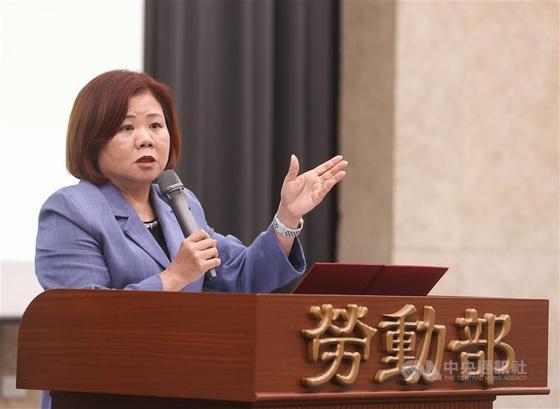
with different appearances and cultures coming into Taiwan. However, instead of guaranteeing the population that the government would ensure those coming into Taiwan were quality workers who would adhere to Taiwanese laws or educating the population about the benefits of a diverse society, Hsu rather succeeded in reinforcing conscious and unconscious hurtful narratives about differences in skin-tone
The next week the Ministry of Labor apologized and backtracked what Minister Hsu said The Ministry expressed “sincere apologies over this situation ” They also clarified that “Taiwan will welcome any Indian worker who meets conditions for recruitment and satisfies industry demand, regardless of their ethnic background,” and Hsu implied “absolutely no discriminatory connotation when she mentioned ‘similar skin color’ in the interview. ”
However, the Minister’s comment was picked up by many online who expressed racist sentiment and fear of too many migrant workers from different cultures coming to work in Taiwan. Others fear that the damage control being done by the ministry is primarily focused on ensuring that India does not walk away from the table rather than truly acknowledging the hurt felt by the Indian population. Taiwan’s semiconductor industry, which many feel is essential to its national security, is looking to make significant investment in India. Some reports state that Taiwan is looking to hire as many as 100,000 laborers from India to fill essential positions in factories, hospitals, and farms
This is just one small example of the challenges and discrimination that migrant workers have to endure while living abroad Developed countries reap the benefits that these individuals bring to their communities, yet still treat them as less than due to their skin tone, religious background, and country of origin

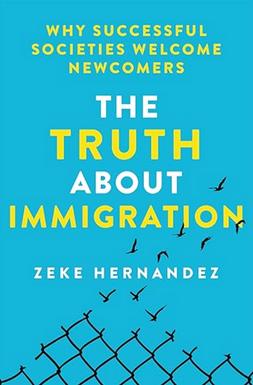

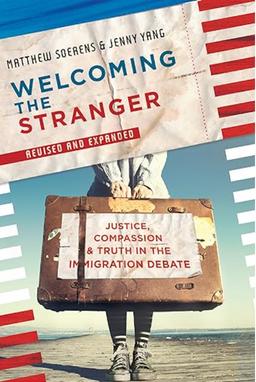
In this book, Hernadez combines moving personal stories with rigorous research to offer an accessible, apolitical, and evidence-based look at how newcomers affect our local communities and America You'll learn about the overlooked impact of immigrants on investment and job creation; realize how much we take for granted the novel technologies, products, and businesses newcomers create; get the facts straight about perennial concerns like jobs, crime, and undocumented immigrants; and gain new perspectives on misunderstood issues This book is all about how newcomers benefit you, your community, and your country This book turns fear into hope by proving a simple truth: immigrants are essential for economically prosperous and socially vibrant nations
To be released June 4, 2024
Immigration is one of the most fraught, and possibly most misunderstood, topics in American social discourse yet, in most cases, the things we believe about immigration are based largely on myth, not facts Using the tools of modern data analysis and ten years of pioneering research, new evidence is provided about the past and present of the American Dream, debunking myths fostered by political opportunism and sentimentalized in family histories, and draw counterintuitive conclusions, including: upward mobility, rapid assimilation, improved economy, and helping U S born Using powerful story-telling and unprecedented research employing big data and algorithms, Abramitzky and Boustan are like dedicated family genealogists but millions of times over They provide a new take on American history with surprising results, especially how comparable the “golden era” of immigration is to today, and why many current policy proposals are so misguided.
Immigration is one of the most complicated issues of our time Voices on all sides argue strongly for action and change Christians find themselves torn between the desire to uphold laws and the call to minister to the vulnerable In this book World Relief immigration experts Matthew Soerens and Jenny Yang move beyond the rhetoric to offer a Christian response to immigration They put a human face on the issue and tell stories of immigrants' experiences in and out of the system With careful historical understanding and thoughtful policy analysis, they debunk myths and misconceptions about immigration and show the limitations of the current immigration system Ultimately they point toward immigration reform that is compassionate, sensible, and just as they offer concrete ways for you and your church to welcome and minister to your immigrant neighbors.
Freakonomics Radio has produced a three-part series about immigration that dives deep into historical immigration trends in America The episodes also look at various perspectives of the complex immigration issue Follow these links to listen to the series, or check out “Freakonomics” on your favorite podcast app
Episode1: The True Story of America’s Supremely Messed-Up Immigration System
Episode2: What Both Parties Get Wrong About Immigration
Episode3: Why Is Everyone Moving to Canada?
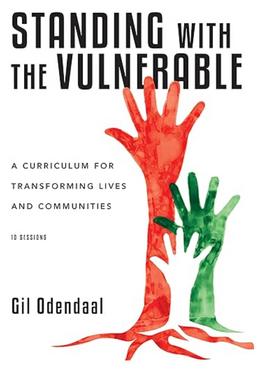
VIDEO:
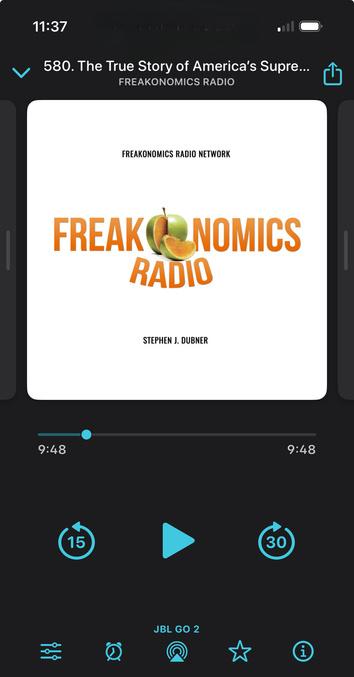
Standing with the Vulnerable: A ten-session curriculum from World Relief
The world has needs Children are orphaned, refugees are displaced and families are devastated by natural disasters But God is greater than those needs, and he works through his people to accomplish healing and transformation God calls us to an integral mission obeying both the Great Commission and the Great Commandment in ministering to people's spiritual, physical, emotional and social well-being This curriculum from World Relief is designed to mobilize the church to engage the great causes of our day, stand with the vulnerable and meet the needs of our neighbors as Jesus did These ten sessions show how shaping our fundamental beliefs and values lead to better actions and results Together we can alleviate poverty, welcome the stranger and transform communities at home and around the world Join with others in learning how to love God, love your neighbors and put that love into action

The Gospel Coalition: Good Faith Debates How Should Christians Support Immigration Laws? https://tinyurl.com/bds529y2
The issue of immigration is divisive in American politics, and also among American Christians (whose opinions about immigration are often more informed by politics than the Bible) What are the best biblical arguments for strong borders and enforcement of immigration law on one side, or more open borders on the other? For Christians, how does our faith inform the relationship between respecting the law and showing compassion to undocumented immigrants?
One of the common fears peddled by those opposed to higher rates of immigration often describe graphic crimes committed by individuals who have recently immigrated.
American politicians have widely exaggerated claims of the danger migrants pose to a society; that they’re more likely to be rapists, mentally ill, drug mules, or other kinds of criminals rather than innocent people forced to leave their homes due to situations far beyond their control.
If the narrative isn’t about their criminal intent, it may be that these people will not be able to successfully incorporate into the local culture and that they will be a drain on societal resources rather than the massive economic drivers that migrants actually are. There are also fears that an influx of migrants will dilute the national identity and the cultural hallmarks will be erased and replaced by the culture brought by immigrants
Recent events have also shown the danger of antiimmigrant rhetoric. The shooter at a supermarket in Buffalo, New York in 2022 pointed to the “Great Replacement Theory,” a thought that migrants and non-white individuals are coming to America to take over as the majority, in his manifesto as the motivator for his murder of ten people.
Research has shown that crime rates among immigrants are actually significantly lower than their national citizen neighbors. According to Stanford University, in the United States immigrants are 60% less likely to be incarcerated than a US-citizen Furthermore, even those who are considered illegal immigrants in border-states are 37.1% less likely to commit a crime.
The Marshall Project found that between 2007 and 2016, there was no link between undocumented immigrants and a rise in violent or property crime in those communities.
Statistics look similar in other countries. In Taiwan, National Police Agency data shows that in 2022 the crime rate among migrant workers was 59.46 cases per 100,000 people, lower than the 114.12 per 100,000 among Taiwanese.
One reason for this lower crime rate is that immigrants, especially ones without all the necessary legal documents, are aware that even a misdemeanor could lead to deportation Consequently, they are more likely to strictly adhere to local and national ordinances so that they do not jeopardize their current situation.
Immigration is a complicated issue that has no silver-bullet solution. Closing the border is no better a solution to opening wide the country to anyone who wants to come. However, while robust debate is needed in order to determine the line between too-few and too-many incoming immigrants, we must not forget the human faces behind the issue The vast majority of immigrants go on to to live ordinary lives, quietly contributing to the society that has given them a fresh start.
In New York City, where many migrants end up due to a personal desire to join existing ethnic communities or due to being bussed into the city, a flower shop owner expressed his distaste of their presence at a shelter near a public school by saying, “How do you put migrants across from an elementary school? An all-girl high school, and another public elementary school," he asked. "You don't know who they are Criminals You see all the crimes that are being committed by migrants "
The New York Police department has no record of increasing crime rates in the city due to the presence of immigrants.

Jiwa gets 100% of your donation thanks to our giving platform, Zeffy.
Use Jiwa’s referral link to set up an account for your church or nonprofit and start putting every donor dollar towards your mission:

https://t.ly/D4k3E
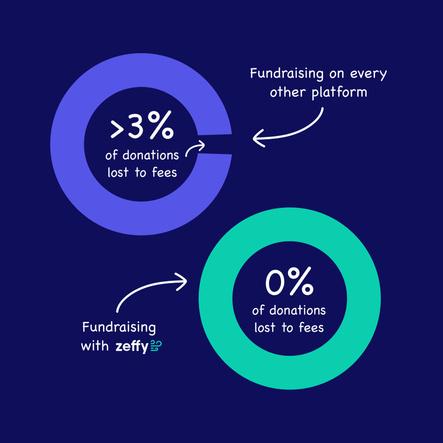

We understand the stress International Workers face when figuring out all the details of coming back to the US for a limited amount of time. Buying or finding a car to use for a couple weeks to over a year adds a lot of stress Through the Lord's calling and blessing, we can help!


We provide vehicles for International Workers, including Jiwa International staff, primarily based out of Pennsylvania to use when they are home from abroad. If you or someone you know needs a vehicle, contact us at springgrove@sgacma.org or (717) 225-0343.
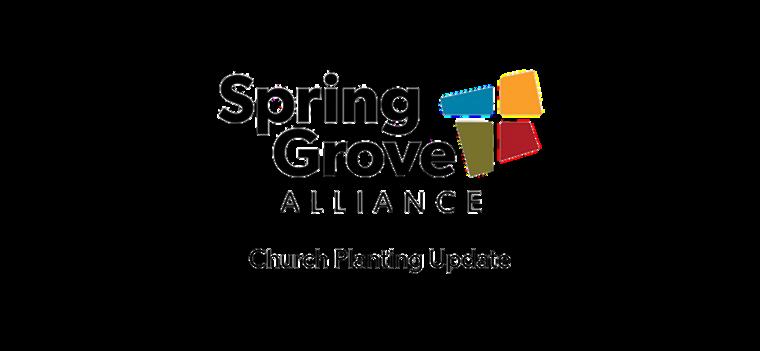


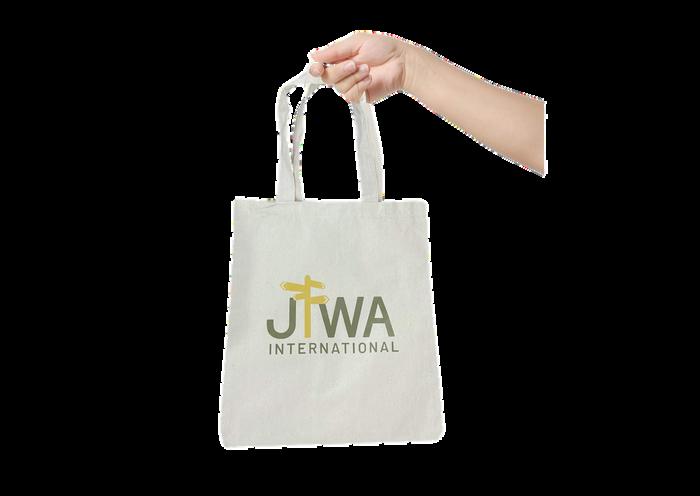
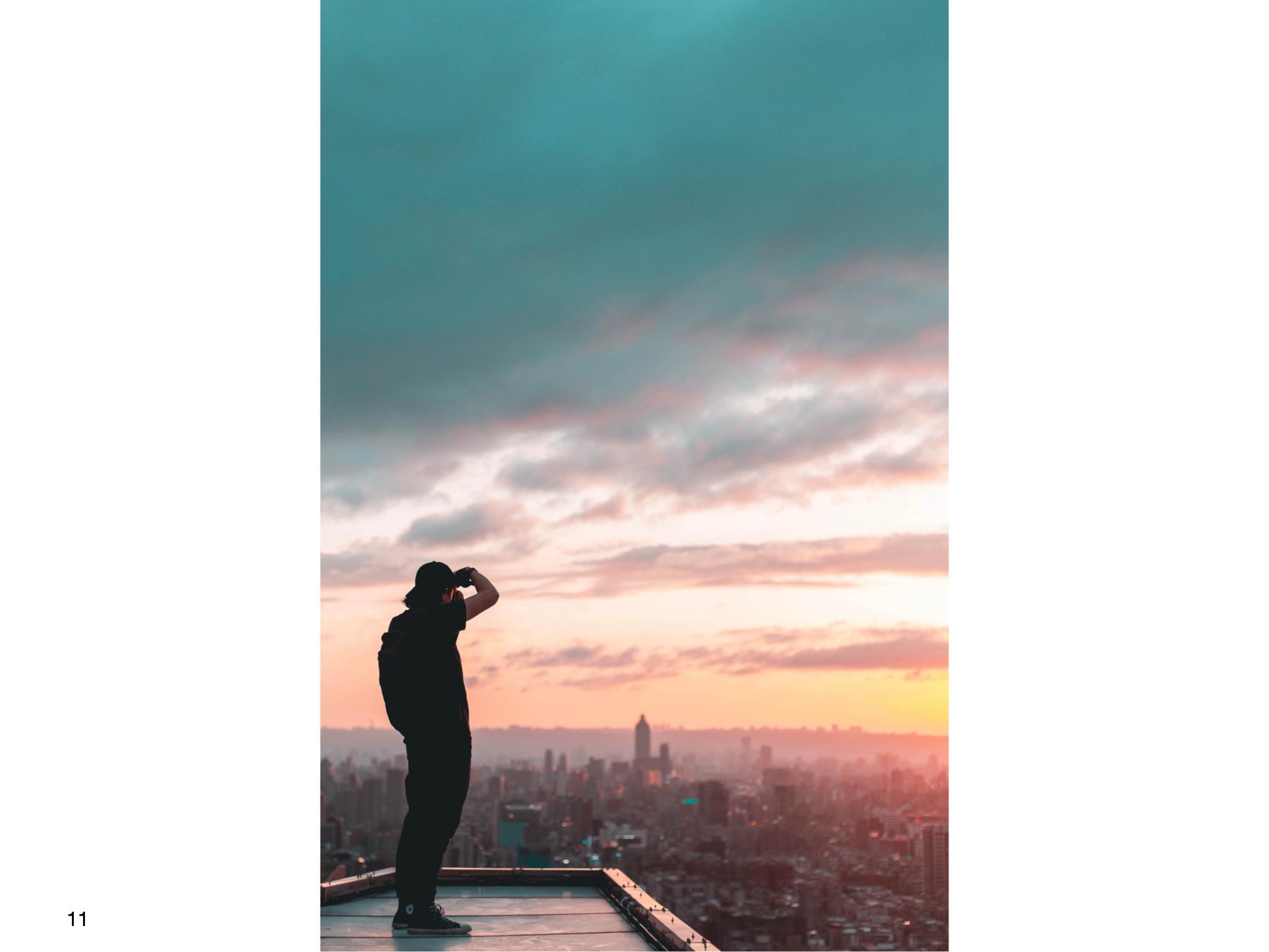
Our vision for identifying and meeting the needs of migrant workers goes beyond only the Indonesian migrant workers in Taiwan. Our current staff have unique experience and abilities that allow us to reach out to this specific people group, but your experiences and abilities could help us expand long-term to helping even more people in unique ways!
We also have opportunities for short-term trips and internships that would allow groups and individuals to work on the ground with Jiwa Please look at some of current needs below and fill out the inquiry form at www jiwaintl org/serve
Staff, interns, and short-term volunteers of Jiwa International fundraise for their own compensation and/or expenses Opportunities may be available abroad or in the United States depending on the situation
Current Opportunities & Needs
Graphic Design
Journalism & Writing/Editing
Curriculum Development
English Teaching
Construction & Renovations
Relationship Building
Business-as-Mission
Cross-Cultural/Religious Internships
